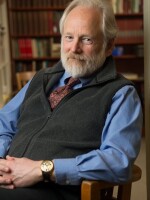Did George W. Bush do liberals a favor nominating John Roberts to succeed the late Chief Justice William Rehnquist, instead of following Sandra Day O’Connor as originally planned? Associate Justices may be as extreme as their reasoning dictates but, this argument goes, the chief justice can’t be purely ideological. He’s got different responsibilities, like moderating among bickering colleagues and, perhaps more than he’d like, considering the potential consequences of court decisions. Hence, instead of anchoring the conservative bloc, at least some of the time Roberts must be more pragmatic than pure.
This may explain apparently contradicting opinions in this term’s highest profile cases. Roberts delighted liberals and outraged conservatives with his majority opinion upholding the Affordable Care Act, but did the reverse dissenting on same-sex marriage. There he accused colleagues of legislating from the bench, arguing “judges have the power to say what the law is, not what it should be”, and asserting “courts are not concerned with the wisdom or policy of legislation.” – despite apparently doing most of this in his previous day’s ruling on affordable care.
Roberts claims he’s simply an umpire, but critics regard such chameleon-like reasoning as evidence that he’s a conservative ideologue, whose position occasionally forces him to join the other side. Even though he upheld the Affordable Care Act in 2012, they remind us, Roberts then favored conservatives by declaring the individual mandate a tax rather than a subsidy and permitting states to opt out of Medicaid expansion, which 22 have done.
Whether Roberts is an impartial umpire or a quiet zealot with a thumb on the scales of justice, only time will tell. But I’d suggest watching two things. First, note his opinions in the religious liberty challenges bound to rise in response to the same-sex marriage decision. Second, pay attention to Evenwel v. Abbott, a “one person, one vote” test coming up this fall. Many have noticed that in opinions involving money in politics, voting rights, and redistricting, Roberts displays a deeply conservative bent in regard to the electoral process.
“The Constitution,” said an earlier chief justice, “is what the Supreme Court says it is.” The person doing most of that saying today is John Roberts. It’d be nice to know him better.





